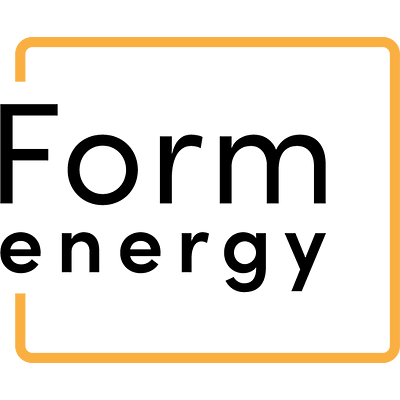
Senior Scientific Software Engineer
Apply now
Please let Commonwealth Fusion Systems know you found this job on Work in Green. This will help us grow!
Expired
Employment type:
Full time
Experience required:
Senior
Salary
Salary not provided
About the company:
Commonwealth Fusion Systems (CFS) is on a mission to deliver clean fusion energy to the planet fast enough to matter for humanity’s biggest challenges.
It’s urgent. The gap between the energy we need and the energy we have is widening every day. Fusion is a critical part of the energy transition away from fossil fuels, a new chapter for the world’s energy supply.
We’re committing to delivering fusion power plants and a full-fledged fusion energy industry as we’ve delivered on other promises. Like the world’s strongest high-temperature superconducting magnet, the game-changing technology that’s making commercial fusion energy a reality.
We’ve raised over $2 billion in capital — more than any other fusion energy company — and attracted top talent to design, build, and deliver commercial fusion power plants. And we’re working with policymakers and suppliers to make fusion energy available globally.
As we push toward the fusion-energy future, we’ll keep setting and meeting milestones, sharing and validating our progress, and encouraging others to do the same.
It’s urgent. The gap between the energy we need and the energy we have is widening every day. Fusion is a critical part of the energy transition away from fossil fuels, a new chapter for the world’s energy supply.
We’re committing to delivering fusion power plants and a full-fledged fusion energy industry as we’ve delivered on other promises. Like the world’s strongest high-temperature superconducting magnet, the game-changing technology that’s making commercial fusion energy a reality.
We’ve raised over $2 billion in capital — more than any other fusion energy company — and attracted top talent to design, build, and deliver commercial fusion power plants. And we’re working with policymakers and suppliers to make fusion energy available globally.
As we push toward the fusion-energy future, we’ll keep setting and meeting milestones, sharing and validating our progress, and encouraging others to do the same.
Commonwealth Fusion Systems (CFS) has the fastest, lowest cost path to commercial fusion energy.
CFS collaborates with MIT to leverage decades of research combined with groundbreaking new high-temperature superconducting (HTS) magnet technology. HTS magnets will enable compact fusion power plants that can be constructed faster and at lower cost. Our mission is to deploy these power plants to meet global decarbonization goals as fast as possible. To that end, CFS has assembled a team of leaders in tough tech, fusion science, and manufacturing with a track record of rapid execution. Supported by the world’s leading investors, CFS is uniquely positioned to deliver limitless, clean, fusion power to combat climate change. To implement this plan, we are looking to add dedicated people to the team who treat people well, improve our work by adding multifaceted perspectives and new ways of solving problems, have achieved outstanding results through a range of pursuits, and have skills and experience related to this role.
The Scientific Software team at CFS develops software that helps us understand and build superconducting magnets and tokamaks. The primary project for this role will be an open-source pulse planning, simulation, and physics collaboration framework for tokamaks. We seek an experienced software engineer (Senior to Principal level) to help establish the architecture of this simulation framework. Researchers will use this framework to develop new physics models or control/estimation algorithms and virtually test them on the SPARC or ARC tokamaks. We hope to foster collaboration between CFS and physics/controls/machine learning researchers at partner universities and corporate research groups by making the sim framework open-source.
Thus, the simulation framework must be easy to use and add modules to while also being interoperable with CFS’s internal tokamak control software and test infrastructure. An ideal candidate would have made software that many other developers built upon and show an aptitude for learning about the project's physics aspects.
CFS team members thrive in a fast-paced, dynamic environment and have demonstrated exceptional results through a range of different pursuits. We all tightly align with our company values of integrity, execution, impact and self-critique. As we grow, we are looking to add talented people who are mission driven and bring diverse perspectives and new ways of solving problems.
At CFS, we deeply value diversity and are an equal opportunity employer by choice. We consider all qualified applicants equally for employment. We do not discriminate on the basis of race, color, national origin, ancestry, citizenship status, protected veteran status, religion, physical or mental disability, marital status, sex, sexual orientation, gender identity or expression, age, or any other basis protected by law, ordinance, or regulation.
This team member will:
The ideal candidate will have most, if not all, of these requirements:
Additional preferred experience and/or qualifications:
Similar climate jobs
These are some of our top picks for great climate jobs on Work in Green.

USA
840
$97,240.00 - $139,777.00

USA

USA

USA

United States

USA
1239 Renewables jobs at Commonwealth Fusion Systems
Commonwealth Fusion Systems is hiring Assembly Process Engineer - Contract,Instrument and Control Valve Commissioning Technician,Production Technician Supervisor - Third Shift, and more.

USA

USA

USA

USA

USA